MLB: Another look back at the top ten relievers

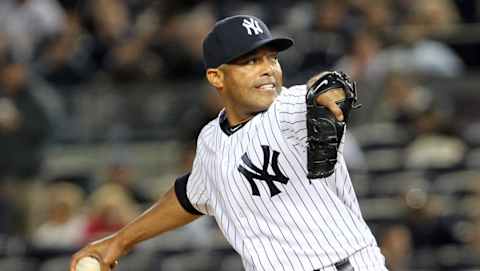
Assessing the MLB experts’ ratings of the best relievers of the divisional era
As part of its annual winter ‘Top 10 Right Now’ exercise, MLB Network debuted a new feature Monday night. Show host Brian Kenny and guest expert Bob Costas were tasked with ranking the top 10 relievers of the divisional era; that is, since 1969.
It’s a broad task, especially Monday’s since that show involved relievers. As Kenny, several times pointed out, the position is baseball’s most notoriously volatile, with performance values rising or falling seemingly by the season.
The task of ranking relievers over a half century period is made more daunting by the changing demands attached to the position.
For about the first decade of the divisional period, the best relief pitchers were “savers”; that is, guys who took over when the starter ran out of gas and often finished the job. They ran up workloads out of touch with today’s usage patterns and sometimes accumulated nearly as many wins as saves.
Beginning with Bruce Sutter in the late 1970s, the idea took hold of the reliever as closer. Sutter, Rollie Fingers, and others of their era would be saved for the late innings of a game their team led and record the final three, five, or seven outs.
When Tony LaRussa got hold of Dennis Eckersley in Oakland a decade later, he added a further refinement, saving Eckersley exclusively for the ninth. That was basically the beginning of the modern MLB closer use pattern.
Costas and Kenny agreed on the guy at the top of their list, Mariano Rivera. “Rivera by acclimation is No. 1,” Costas proclaimed. But is that true? And how well did either Costas or Kenny do in actually reflecting the best relievers across such a diverse period?
For the record, here are their respective top 10s:
Kenny Costas
1 M. Rivera M. Rivera
2 R Gossage D Eckersley
3 R Fingers R Fingers
4 T McGraw R Gossage
5 B Sutter T Hoffman
6 D Quisenberry B Sutter
7 C Kimbrel B Wagner
8 D Eckersley C Kimbrel
9 T Hoffman A Chapman
10 S Lyle L Smith
To actually assess who deserves to be on this list, in what order, and how good a job either Kenny or Costas did, we need some criteria. Probably due to time constraints, neither Kenny nor Costas specified their criteria, although in the case of Kenny and probably Costas as well you can assume they had some.
We’re going to apply four criteria designed to reflect the broad and changing range of demands placed on relievers across the decades. We’ve assessed 30 well-known relievers according to the four criteria and given them an ordinal score equal to their rank in each of the criteria.
Alphabetically, the 30 nominees are: Aroldis Chapman, Dennis Eckersley, Rollie Fingers, John Franco, Eric Gagne, Goose Gossage. Willie Hernandez, Trevor Hoffman, Kenley Jansen, Craig Kimbrel, Sparky Lyle, Mike Marshall, Roger McDowell, Tug McGraw, Jeff Montgomery, Randy Myers, Joey Nathan, Jonathan Papelbon, Troy Percival, Jeff Reardon, Mariano Rivera, Francisco Rodriguez, Dave Smith, Lee Smith. Huston Street, Bruce Sutter, Bobby Thigpen, Billy Wagner, and John Wetteland.
When all four categories are assessed, the player with the average ordinal score closest to a perfect rating of 1.0 is the winner.
The criteria are: 1. five-year peak performance with ERA+ as the yardstick; 2. Career ERA+; 3. Reliever-of-the-year awards won; 4. Relief innings pitched.
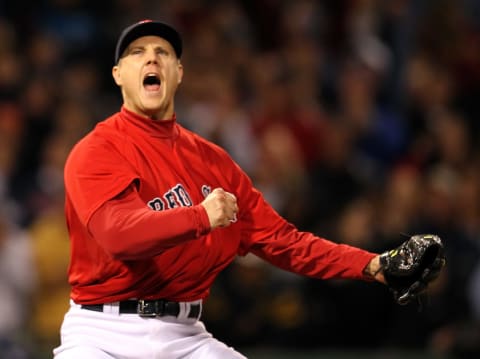
Five-year peak performance
This criterion is simply the reliever’s five-season average ERA+. Because they can perform exceptionally compared with contemporaries who work more innings, the best MLB relievers can have stratospheric ERA+ scores.
Here are the 10 best peak averages among the 30 candidates.
Rank Pitcher Seasons Average
1 Papelbon 2005-09 279.6
2 Eckersley 1988-92 266.0
3 Nathan 2004-08 257.8
4 Rivera 2005-09 256.0
5 Kimbrel 2011-15 252.0
6 Gossage 1977-81 243.8
7 Jansen 2010-14 239.4
8 Chapman 2012-16 225.6
9 Wagner 2005-09 223.0
10 Wetteland 1993-97 208.0
The peak rating list does not line up at all with either Kenny’s or Costas’ overall rankings. Four of the names on it – Papelbon, Nathan, Jansen, and Wetteland – did not make either expert’s overall top 10. Rivera, “No. 1 by acclamation,” ranks only fifth. Sutter, Hoffman, and Fingers, who made both experts’ top 10, ranked only 14th, 15th, and 22nd respectively among the 30 for five-season average ERA+.
Papelbon is the obvious oversight in this category. Between 2005 and 2009, he saved 151 Red Sox games plus seven more in the post-season, three of those coming in Boston’s 2007 World Series sweep of the Colorado Rockies. He ran up a 517 ERA+ in 2006 (4-2, 0.92 ERA, 35 saves in 59 appearances).
The apparent failure to even consider Papelbon is striking given his 2.44 career ERA, his 368 saves, and 725 innings pitched; a decent workload for his era.
Among those viewed as relief elites, Fingers comes up smallest in this category. During his five-season peak, 1978-82, only averaged a 162.60 ERA+. That’s All-Star level, but unexceptional in this company. Fingers’ relatively modest rating in this category may be due to his heavier workload. He topped 100 innings annually between 1969 and 1978, an achievement that may help him elsewhere but moderates the exceptionality of his work by the standards of these 30 pitchers.
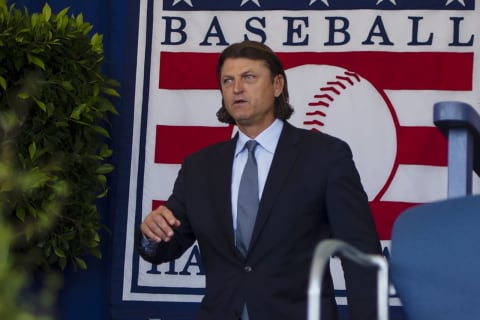
Career ERA+
This category, which is simply the sum of each pitcher’s ERA+ values, is designed to reward excellence over time. It is essentially a counter-balance to the first, peak-performance oriented, category.
Here are the top 10:
Rank Pitcher Score
1 Rivera 4,219
2 Gossage 3,061
3 Franco 3,045
4 Hoffman 3,016
5 Wagner 2,987
6 Kimbrel 2,941
7 Lee Smith 2,421
8 Papelbon 2,419
9 Rodriguez 2,345
10 Nathan 2,260
The consistent exceptionality of Rivera’s performance easily elevates him to the top of this category. Although his highest single season score – 308 in 2008 – seems modest by comparison with Papelbon’s 517 in 2006, Rivera had 13 seasons with scores in excess of 200. That’s hard to beat.
The surprise here is John Franco, the 1980s and 1990s era closer for the Mets and Reds. Although unmentioned by either Kenny or Costas, Franco’s 424 career saves – three times leading the National League – produced nine seasons with an ERA+ above 150.
Papelbon and Nathan show up again, this time in the ninth and 10th positions.
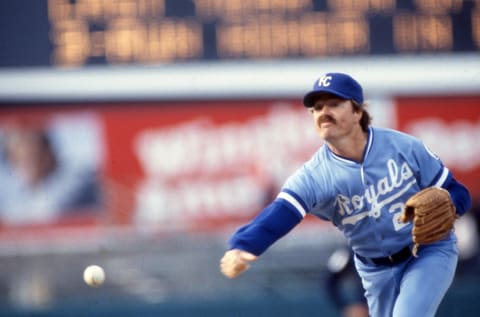
Reliever of the Year
Under one sponsor or another, a reliever of the year has been recognized annually since before the divisional era began. For many years the Sporting News and Rolaids jointly sponsored the award, although in 2013, MLB took over the duties itself
Here’s the ranking of the most frequent honorees
Rank Pitcher Awards
1 Rivera 5
1 Quisenberry 5
3 Kimbrel 4
3 Fingers 4
3 Sutter 4
6 Lee Smith 3
7 Franco 2
7 Hoffman 2
7 Jansen 2
7 Eckersley 2
7 Myers 2
7 Rodriguez 2
7 Gagne 2
The top of the list is populated with names that also dominated the lists of Kenny and Costas. Of the five pitchers with four or more Reliever of the Year awards, Kenny included all five – none worse than seventh – and Costas left off only Quisenberry.
The bottom of the top 10 – which due to a tie is 13 bodies deep – is another story. Costas included only two of the lowest-ranking eight, Costas only three, and both looked past Franco, Jansen, Myers, Rodriguez, and Gagne entirely.
Kenny included two relievers in his top 10 – McGraw at four and Lyle at 10 – who were shut out of Reliever of the Year consideration for the length of their careers.
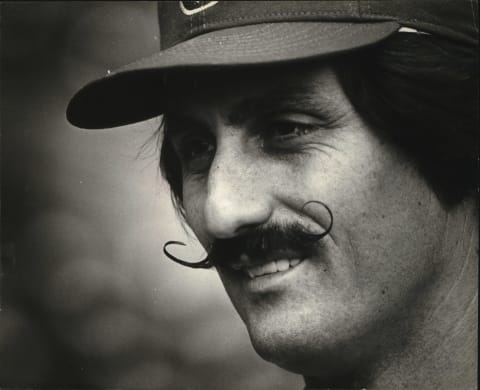
Workload
It is axiomatic in baseball that a pitcher only has value when he pitches. Notwithstanding all the work that has been done in recent seasons to quantify such concepts as leverage innings, that makes workload an inescapable factor in evaluating performance.
In this category, pitchers from the 1970s and early 1980s have a clear advantage, since modern reliever usage norms prevent any closer from running up innings counts even close to what their forefathers did.
With that on the record, here are the top 10 in MLB reliever innings. A note in presenting this list: The totals shown are for relief appearances only. That’s especially a factor in the case of Dennis Eckersley, a starter for the first decade of his career. Eckersley ranked only 20th in reliever innings.
Rank Pitcher Rel. IP
1 Fingers 1,553
2 Gossage 1,550
3 McGraw 1,414
4 Lyle 1,390
5 Marshall 1,267
6 Lee Smith 1,250
7 Franco 1,246
8 Rivera 1,217
9 Reardon 1,132
10 Hoffman 1,089
The highest ranked reliever whose career began in the last quarter-century was Francisco Rodriguez. With 976 relief innings, he stands only 15th on the list.
By contrast, seven of the bottom 10 among the 30 who were considered began their MLB careers after 2000.
Fingers and Gossage are the personifications of the classic 1970s reliever. Fingers topped 100 innings of work for 10 consecutive seasons, the final seven of them encompassing just two starts. For the1976 Athletics, he made 34 appearances of two innings or more.
For the White Sox in 1975, Gossage logged 29 such appearances, 17 exceeding three innings. Yes, it was a different game back then.
But perhaps no one exemplifies the workhorse reliever like Mike Marshall and Sparky Lyle, third and fourth on this list. In 1974, when he won the Cy Young Award and helped Los Angeles to the National League pennant, Marshall performed relief feats that were unimaginable even then, and which would get a manager fired – and possibly arrested for abuse – if attempted today. He made 106 appearances, worked 208.1 innings, and went 15-12 with 21 saves on a 2.42 ERA despite not starting a single game
Lyle’s 137 innings for the 1977 Yankees came in 72 appearances, 22 of which extended beyond two innings. Lyle not only saved 26 games that year, he won 13 more.
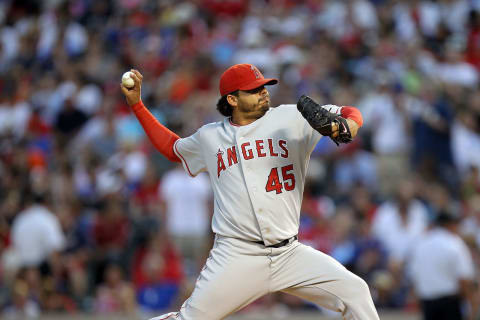
The final tabulation
The tabulation below is based on the average ordinal placement of each of the 30 pitchers in all four categories. A score of 1.0, indicating a first place rank in all four categories, would be perfect. The list also shows the pitcher’s standing on the Kenny and Costas lists.
Rank Pitcher Ordinal Avg Kenny Costas
1 Rivera 3.50 1 1
2 Gossage 6.00 2 4
3 Franco 9.00 NR NR
3 Hoffman 9.00 9 5
5 Kimbrel 10.25 7 8
6 Rodriguez 10.50 NR NR
7 Fingers 11.00 3 3
7 Wagner 11.00 NR 7
9 Eckersley 11.25 8 2
10 Lee Smith 11.50 NR 10
These results verify one key conclusion from the Kenny-Costas lists: Mariano Rivera is indeed “No. 1 by acclamation.” He led two of the categories, and ranked fourth and eighth in the others.
The experts’ performance on the remainder of the list reflects the volatile nature of the relief pitcher assignment. Only six of Kenny’s top 10 made this top 10. Costas did better, landing eight of his top 10 among this top 10.
Based on this data, both experts over-rated Bruce Sutter. They rated him fifth (Kenny) and sixth (Costas). On this list, he managed only 12th place behind the top 10 and Quisenberry. The difference may reflect a tendency on the part of both experts to emphasize the importance of the role played by Sutter in changing the nature of the relief assignment.
Our list, which is entirely objective, does not factor such things into its conclusions.
Both experts also overlooked at least two relievers who deserved better from them. Franco ranked 19th, third, seventh, and seventh in the four categories, good for a 9.00 average and a tie with Hoffman for third place.
Next. Worst GMs of the 21st century. dark
And Francisco Rodriguez stood sixth on this list with an average score of 10.5. Rodriguez, a star with the Angels, went unmentioned in the MLB Network segment.